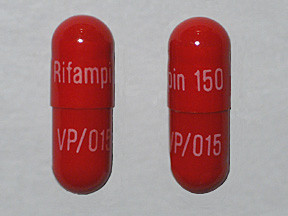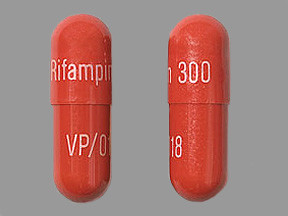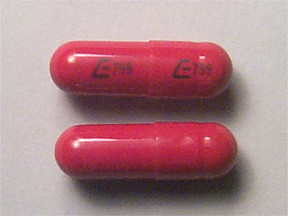RIFAMPIN - ORAL
PHONETIC PRONUNCIATION: (rif-AM-pin)
COMMON BRAND NAME(S): Rifadin, Rimactane
GENERIC NAME(S): rifampin
Uses
USES: This medication is a rifamycin antibiotic used to prevent and treat tuberculosis and other infections. This antibiotic treats only bacterial infections. It will not work for viral infections (such as common cold, flu). Using any antibiotic when it is not needed can cause it to not work for future infections.
How to use RIFAMPIN - ORAL
HOW TO USE: This medication is best taken on an empty stomach with a full glass of water (8 ounces or 240 milliliters) 1 hour before or 2 hours after meals; or take as directed by your doctor. If you have nausea, do not take antacids with rifampin since it will lessen the effectiveness of this drug. However, if you need to take antacids, wait at least 1 hour after taking this drug. If you are unable to swallow the capsules, you may open the capsule and sprinkle the contents onto a spoonful of cool, soft applesauce or jelly. Eat the entire mixture right away. Do not prepare a supply for future use. If you have a liquid form, shake the bottle well before each dose. Use a medication-measuring device to carefully measure the prescribed dose. Rifampin is frequently used in combination with other antibiotics to prevent or treat certain kinds of infections (e.g., latent/active tuberculosis, meningococcal disease). Your dose/schedule/treatment length will vary, depending on what you are treated for. For the best effect, take this medication at evenly spaced times, or exactly as directed. To help you remember, take this medication at the same time(s) every day. Continue to take this medication until the full prescribed amount is finished, even if symptoms disappear after a few days. Stopping the medication too early may allow bacteria to continue to grow, which may result in a return of the infection. Inform your doctor if your condition persists or worsens.
Side Effects
Precautions
Interactions
Overdose
Images

- color
- orange
- shape
- oblong
- imprint
- Rifampin 150, VP/015

- color
- orange
- shape
- oblong
- imprint
- Rifampin 150, VP/015

- color
- orange
- shape
- oblong
- imprint
- Rifampin 300, VP/018

- color
- orange
- shape
- oblong
- imprint
- Rifampin 300, VP/018

- color
- orange
- shape
- oblong
- imprint
- Rifampin 300, VP/018

- color
- orange
- shape
- oblong
- imprint
- Rifampin 300, VP/018
Reviews
Faq for RIFAMPIN - ORAL
Rifampin is an antibiotic medication used to treat certain bacterial infections, including tuberculosis (TB) and other infections caused by mycobacterium bacteria.
Rifampin works by inhibiting the synthesis of bacterial RNA, which is essential for the survival of the bacteria. This helps to effectively kill or stop the growth of the bacteria causing the infection.
Some common side effects of rifampin may include upset stomach, nausea, vomiting, diarrhea, headache, dizziness, and dark-colored urine. These side effects are usually mild and go away on their own.
Yes, rifampin can interact with several medications, including birth control pills, anticoagulants, antifungal drugs, HIV protease inhibitors, and certain anti-seizure medications. It is important to inform your healthcare provider about all the medications you are taking before starting rifampin.
Rifampin is generally taken once or twice daily, with or without food. It is important to take the medication as prescribed and complete the full course of treatment, even if you start feeling better.
Rifampin should only be used during pregnancy or breastfeeding if the potential benefits outweigh the potential risks. It is important to consult with your healthcare provider before taking rifampin while pregnant or nursing.
Yes, rifampin can rarely cause liver damage. It is important to monitor liver function regularly while taking rifampin, especially in those with pre-existing liver conditions.
The effectiveness of rifampin may vary depending on the type and severity of the infection being treated. In general, it may take a few weeks to several months for rifampin to fully resolve the infection. It is important to follow the prescribed treatment duration.
No, rifampin is an antibiotic specifically used for bacterial infections and is ineffective against viral infections, such as the common cold or flu.
Disclaimer
IMPORTANT: HOW TO USE THIS INFORMATION: This is a summary and does NOT have all possible information about this product. This information does not assure that this product is safe, effective, or appropriate for you. This information is not individual medical advice and does not substitute for the advice of your health care professional. Always ask your health care professional for complete information about this product and your specific health needs.

No Reviews Yet